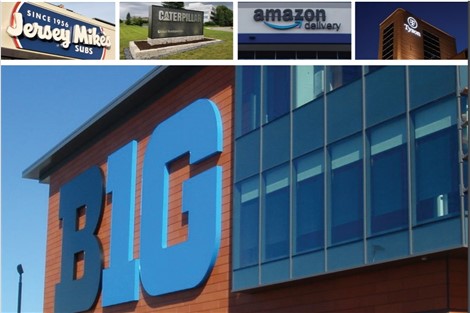
From Crain's Chicago Business Opinions - Elliot Richardson
Chicago politicians recently have raised the minimum wage, mandated paid sick leave and passed other legislation focused on helping employees. Now it's time that they turn their attention to Chicago's job creators.
It's a basic fact: Employees cannot benefit from higher wages and paid sick leave without jobs. And there is enough bad press about Chicago's poor fiscal health to make even the boldest of entrepreneurs cautious about starting or expanding businesses here. Certainly, business owners shudder at the thought of paying higher property taxes so Chicago officials can get a grip on the city's debt.
Chicago policymakers must offset some of the costs associated with higher taxes and new mandates by passing legislation that makes it easier to own a business here. One promising start: Small-business advocates recently worked with the mayor's office and aldermen to significantly reduce the time it takes to procure sign permits. In some circumstances, business owners may obtain a permit in 15 days, shaving approximately 75 days off the process.
Below are several more reforms that will empower Chicago small businesses and help entrepreneurs retain their employees.
Permitting A-frame signs
Chicago's local business owners have been vocally calling to end the prohibition against A-frame signs. These small signs can be placed in front of establishments to pique the interest of potential customers, promote sales and showcase specials. But they are presently illegal in Chicago. Permitting them will empower local entrepreneurs, raise badly needed revenue for the city and make Chicago a friendlier place to own a small business.
Expanding sidewalk cafes
Restaurants drive local economies and help provide a unique flavor to Chicago neighborhoods. The responsible use of sidewalk cafes brings energy to business districts, provides revenue opportunities for the city and supports many small businesses. Expanding sidewalk cafes past the confines of their property lines, with the approval of their neighbors, can help restaurants thrive.
Encouraging more home-based businesses
Simple reforms could pave the way to success for entrepreneurs building businesses at home. Currently, home-based businesses cannot employ more than one nonresident, even if those employees do not work out of the home. People making products at home such as jewelry or greeting cards cannot sell that merchandise in stores. The city should eliminate these restrictions so long as a home-based business does not negatively impact the safety, integrity or aesthetics of local communities.
Allowing restaurants to serve alcohol within 100 feet of a church
Illinois' restaurants are presently unable to serve beer or a glass of wine to patrons if located within 100 feet of a place of worship without receiving a special exemption. This is true even where the sale of alcohol is incidental to a restaurant's business. This has negatively impacted economic development in local communities densely populated by smaller places of worship. Allowing restaurants to serve alcohol to patrons within 100 feet of a place of worship, in a responsible manner, will stimulate local economies throughout Chicago.
Crain's recently called for solutions that will improve the economic climate for Chicago and Illinois businesses. These proposals are a sampling of the recommendations that have been presented to policymakers to counteract the increased taxes and mandates impacting the business community.
Chicago business owners and their employees have a shared interest in the sustainability and growth of the Chicago economy. They are in this together. Politicians must now empower the small-business community to ensure both Chicago's job creators and their employees can prosper.
Elliot Richardson is co-founder and co-CEO of the Small Business Advocacy Council.
Tags
Subscribe to Parvin-Clauss's Blog







Comments